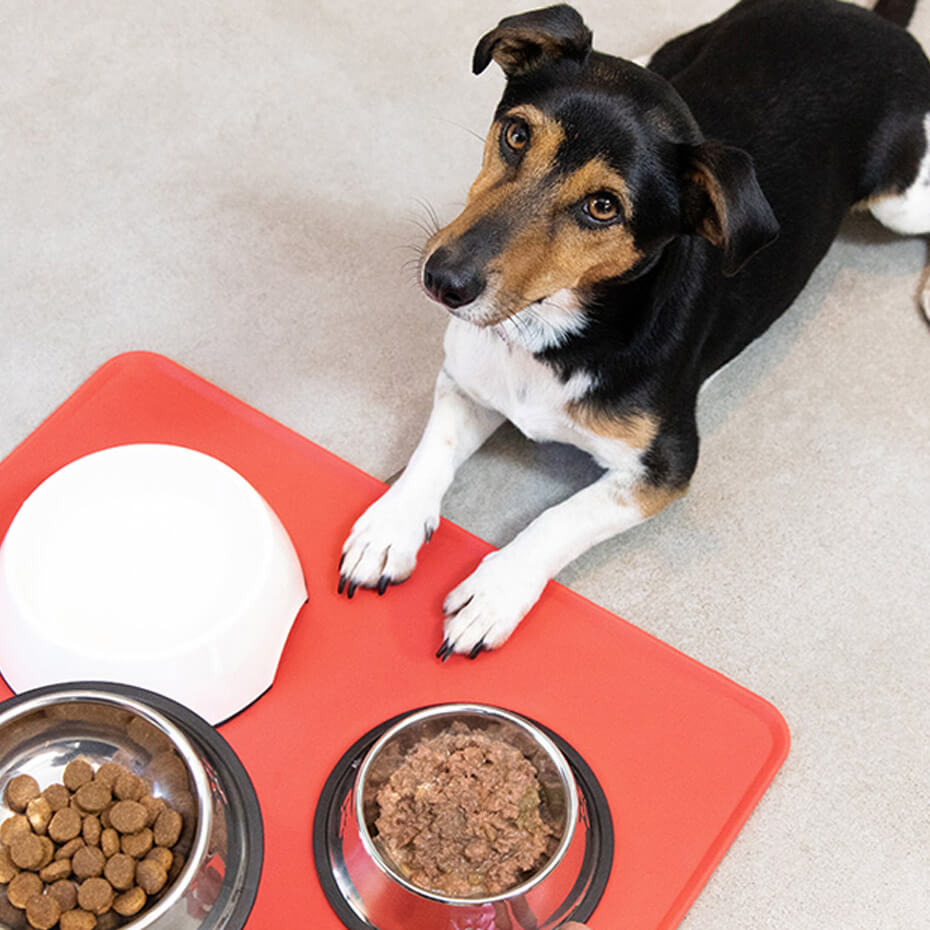
Tuna is better known as the ultimate cat treat, but dogs can also be attracted to the powerful smell of this popular pantry staple. So, if your dog is begging for a bite, here are a few things you should know before caving in to those puppy eyes.
Can dogs eat tuna?
Opinions differ when it comes to the question ‘can dogs eat tuna’. Tuna is safely used as an ingredient in many balanced dog foods, but when it comes to feeding extra tuna as a treat, there’s some conflicting advice out there. Some experts don’t hesitate to recommend this fish, while others advise against adding extra tuna to your dog’s menu.
There are definitely reasons to be cautious with tuna, but when fed very occasionally in moderation, tuna is unlikely to cause health issues for your dog. Every dog is different, so if you want to feed a dog tuna it’s important to offer very small quantities at first, to see how your dog reacts.
Is tuna good for dogs?
Tuna is rich in protein, minerals and vitamins – all important nutrients for a dog’s health and wellbeing. It also contains Omega 3 fatty acids which are good for the health of the skin, coat and cardiovascular system. This means that tuna is useful in some dog foods as a source of various nutrients.
When it comes to feeding extra tuna as a treat, there’s no need to give it for nutritional value. If you feed your dog a complete and balanced dog food, they should get all the nutrients they need from that.
Why is tuna sometimes considered harmful to dogs?
Although tuna is a rich source of nutrients for our four-legged friends, not all pet specialists are on board with its presence in the dog’s food bowl. Here are some of the most common reasons why the answer to the question ‘is tuna good for dogs’ is sometimes ‘no’:
Compared to other fish, tuna contains relatively high levels of mercury, and this raises the risk of mercury toxicity if animals eat too much tuna. Mercury is an industrial pollutant that leaks into the oceans, where it is taken up by fish. Because tuna fish live a long time – sometimes up to 40 years – they can accumulate a relatively large amount of mercury in their tissues over time.
Mercury poisoning in dogs can cause kidney damage, diarrhoea, tremors, hair loss and even blindness. Make sure you contact your vet if you notice any unusual signs that may suggest your dog is experiencing an adverse reaction.
However, when fed occasionally and in very small portions, tuna has a low chance of causing mercury poisoning. It’s always a good idea to check with your vet before introducing this fish into your dog’s diet. They will be able to recommend the right portion size, based on your dog’s weight and health history.
Fish bones are notorious for posing a choking risk for dogs, and tuna fish is no different. When ingested, these small bones can also scratch the delicate digestive tract or even get stuck on their way through. So, if you decide to offer tuna to your dog, it’s a good idea to check for any pieces of bone that may pose a risk and remove them before feeding.
Some experts give a negative answer to the question ‘can dogs eat tuna’ based on its high salt content. After all, this is a fish that lives in salt waters. The good news is that moderation is key to minimising this risk as well. As long as you only feed a small amount, your dog should be able to enjoy tuna every once in a while.
Can puppies have tuna?
Puppies may have to wait a while before getting a taste of tuna. They have a lot of growing up to do and there are specially-designed puppy food formulas to give them everything they need to go through that process in a healthy way. Plus, making sure you offer them the right portion can be a bit trickier given their small size. When it comes to puppies, it’s safest to keep tuna in the cupboard for now.
Is canned tuna good for dogs?
Yes, you can feed your dog canned tuna, as long as you do so in moderation and only infrequently, and you choose the version that’s packed in fresh water instead of oil or salted water. It’s also important to check the label and make sure there is no extra salt added to the canned tuna.
Can dogs eat raw tuna?
No, dogs should not be offered raw tuna. Raw fish of any kind can be contaminated with parasites or bacteria that can make your dog very ill. There is also an enzyme called thiaminase in raw fish that stops vitamin B1 from being absorbed. When the fish is cooked, this troublesome enzyme is no longer a problem, and this is another reason why tuna should be thoroughly cooked before it ends up in your dog’s food bowl.
Want to find out more about what dogs can and cannot eat? Here is our list of harmful foods for dogs. For more handy guides about what dogs eat, check out the rest of our articles in this series.












